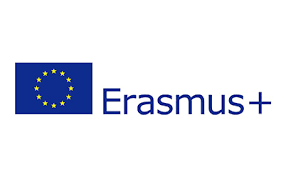By Dominik Speck (Erich Brost Institute for International Journalism)
Becoming a foreign correspondent still appeals to many beginners in the field. Yet, reporting foreign affairs has changed dramatically in recent years. While both the contents and structures of foreign reporting frequently receive various criticisms, emerging methods such as cross-border collaborative journalism offer promising avenues to address shortcomings and overcome inequalities in the making of international news. A new e-learning course on foreign coverage developed in the NEWSREEL2 project aims to provide journalism students and practitioners alike with an overview of these developments. Hostwriter has been a partner in this EU-funded project, alongside universities from five European countries.
The challenges for foreign reporting are plentiful: Permanent correspondents have been made redundant or must cover larger and larger areas. They are often replaced by “parachutists” who are sent to international news hotspots for only a short time, sometimes lacking precise knowledge about the local conditions and culture. Shrinking budgets reduce the ability of newsrooms to invest in the particularly expensive field of foreign reporting. Moreover, newsrooms face vivid debates about properly crediting and paying their local aides, the so-called fixers or stringers. At the same time, digital technologies arguably made sharing news across the globe easier than ever before, while glocalization increasingly blurs the lines between “national” and “international” news.
The field has also seen discussions on unequal news flows, West-centrism in international news, or the influence of colonial heritage and cultural bias. Projects such as Hostwriter’s feminist cross-border newsroom “Unbias the News” aim to create more inclusive spaces for reporting.
To equip students and practitioners with not only an overview of the aforementioned challenges, but also with an idea of possible solutions, the team of the Erasmus+ project NEWSREEL2 – New Teaching Fields for the Next Generation of Journalists has, among other modules, developed an e-learning course specifically dedicated to foreign reporting. The module has been developed by the Erich Brost Institute for International Journalism (EBI) based at TU Dortmund University, Germany. Hostwriter has contributed to the NEWSREEL2 project, for example, by organizing a summer school on collaborative journalism for students and by providing its expertise on cross-border reporting.
The e-learning course on foreign coverage consists of five modules, each of them designed to be completed in about one and a half to two hours. All modules are freely available on the NEWSREEL2 project website. The materials are intended not only to serve university-based journalism education or other journalism training courses, but also to support journalists – whether complete newcomers or more advanced – who wish to educate themselves in covering international issues.
The first module introduces key terms of international relations as well as issues and challenges in contemporary geopolitics from a cosmopolitan perspective, followed by a discussion of what globalization actually means. The second module presents definitions of foreign reporting alongside the most common job descriptions in gathering international news, from permanent correspondent or parachutist to fixer. It includes a critical discussion of the journalist-fixer relationship. The third module dives deep into the debate about global news flows and geographies of news: Why do some countries receive the lion’s share of international coverage, whereas others are only punctually or even never covered? Students are being taken back to the historical roots of the global news flow debate in the Cold War era and learn about more recent findings from empirical studies. The fourth module is dedicated to discussing the contents of foreign coverage, i.e., the topics covered and the tonality commonly applied. It includes a section on war and conflict reporting as one particularly relevant and ethically sensitive issue in international reporting. The fifth and final module summarizes the criticism, challenges, and shortcomings that unfolded in the previous modules while pointing toward possible solutions. Cross-border collaborative journalism, global journalism and transnational news media are being discussed as means to tackle the shortcomings of foreign coverage.
Even though the course has a rather theoretical stance nourished by academic research, it intends to cover relevant professional debates. Insights and advice from practitioners interviewed in the initial stage of the project helped to decide on the contents of the course. In terms of didactics, the course does not present easy solutions or simple textbook knowledge. Rather, it aims to stipulate critical thinking by reflecting on differing views, definitions, and seemingly contradictory findings. Most modules complement self-examination methods such as multiple-choice quizzes with more reflective “food for thought” questions.
Accompanying materials such as a teaching guide that aims to support trainers using the e-learning course, a model class syllabus for university education, and a glossary with crucial terms are available as well.
The NEWSREEL2 project (New Teaching Fields for the Next Generation of Journalists | 2020-1-HU01-KA203-078824, funded by the Erasmus+ Program) started in September 2020 and finished at the end of August 2023. Apart from Hostwriter and the EBI, the project consortium consists of the University of Pécs (Hungary), Masaryk University (Brno, Czech Republic), ISCTE University Institute of Lisbon (Portugal) and the University of Bucharest (Romania). Other than foreign coverage, the project consortium also dealt with topics such as reporting on migration and forced displacement, debunking disinformation, or improving the democratic sensibility of journalists.


